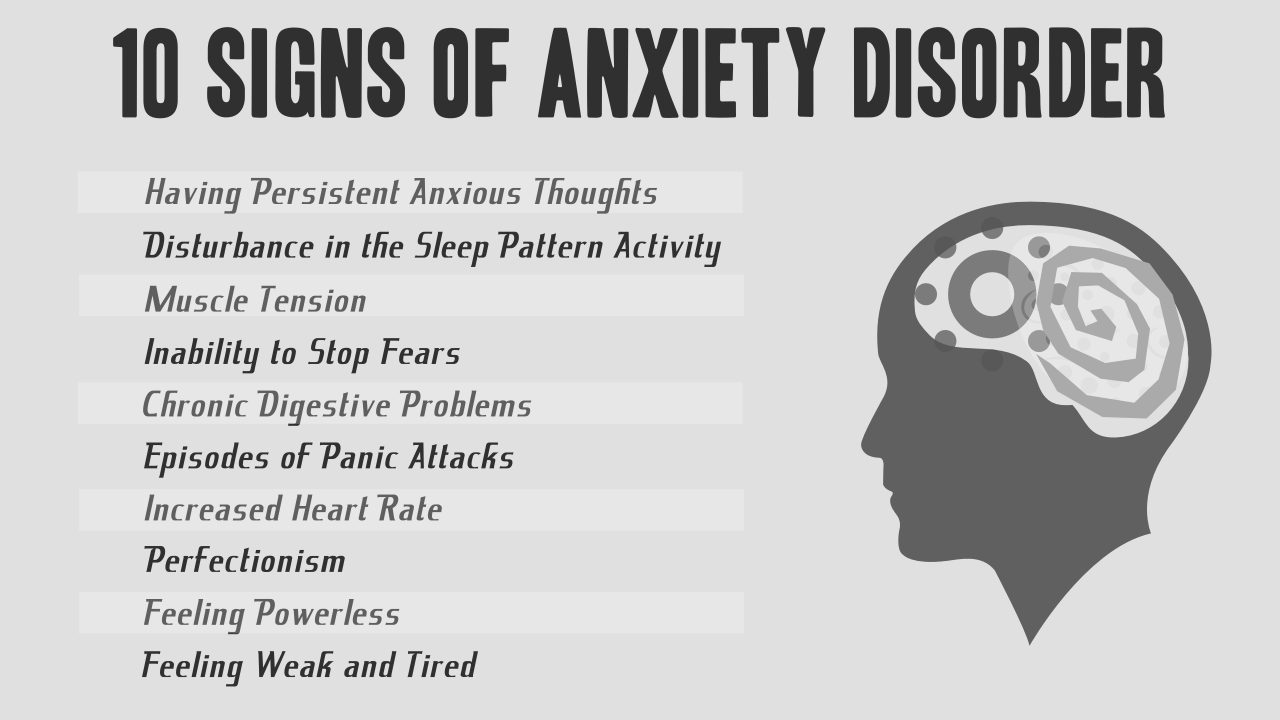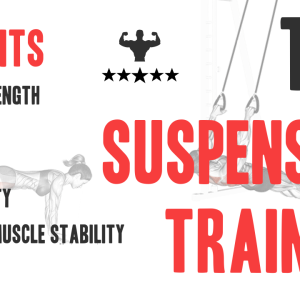Contents
People sometimes feel sad, depressed, or anxious for no reason. Sometimes, he experiences mood swings that he himself cannot understand. Are these normal feelings or are these indications of being afflicted with the most common mental illness in US, which is anxiety disorder? Where does one draw the line between normal anxiety and anxiety disorder?
Here are 10 telltale signs of anxiety disorder:
- Having Persistent Anxious Thoughts
- Disturbance in the Sleep Pattern Activity
- Muscle Tension
- Inability to Stop Fears
- Chronic Digestive Problems
- Perfectionism
- Episodes of Panic Attacks
- Having an Increased Heart Rate
- Feeling Powerless
- Always Feeling Weak and Tired
1- Having Persistent Anxious Thoughts
When a person cannot perform everyday tasks for six months and more due to excessive worrying (when there is really no need to), then there is a probability that he is suffering from anxiety disorder. It is natural to be anxious over small or big things, but not to the point of being so paralyzed over these stressors that they interfere with daily life.
2- Disturbance in the Sleep Pattern Activity
Inability to sleep and rest is one indicative sign of anxiety disorder. There is nothing unusual about someone tossing and turning in bed the whole night before an important interview or event. However, it is not a healthy sign to be up and awake the whole night, thinking over a specific thing or nothing at all.
A person who feels tired right after waking up is also experiencing lack of rest and sleep. Other symptoms include difficulty staying asleep or having restless sleep most of the time.
3- Muscle Tension
The body converts fears and other negative feelings into physical signs and symptoms. One of these is persistent and pervasive muscle tension all over the body but more often at the back and jaw. It could go to the point that it becomes natural for the person to feel muscle pains daily that it does not bother him anymore. Regular exercise can remedy this sign of anxiety disorder.
4- Inability to Stop Fears
A person who tries to overcome his irrational fears but cannot is a potential candidate for anxiety disorder. Feelings of panic and uneasiness over a specific thing like flying, speaking in front of a crowd or receiving an injection to the point of being disruptive are suggestive of this medical condition.
The difference between normal fear and phobia is the proportion of feeling panicky to the actual risk involved. If it is way too much out of line, then it’s probably anxiety disorder.
5- Chronic Digestive Problems
A person having frequent stomach-aches, gas and cramps plus feeling bloated most of the time should consider anxiety disorder as the culprit of these symptoms. These symptoms may be accompanied with alternate episodes of diarrhea and constipation.
When these digestive problems are left untreated, they could result to worse conditions, which will add up to the anxiety and fears of the person.
6- Perfectionism
A person who refuses to accept anything that is short of being perfect is probably suffering from anxiety disorder. Repeating an activity (even when others say that it’s okay already) until it is absolutely right to the littlest details is a sign of perfectionism. These actions can be significant or not, like putting on makeup, tying shoelaces or doing a homework.
7- Episodes of Panic Attacks
Panic attacks are sudden feelings of overwhelming fear and anxiety. The symptoms seem like threatening and fatal but they usually vanish on their own after an hour or so. The person often senses a feeling of impending danger or doom, for reasons he himself cannot explain.
8- Having an Increased Heart Rate
Most people with anxiety disorders complain of rapid heart rate frequently. This adds up to their fears of having heart attacks, making them more anxious in the process. However, upon consultation, lab tests and diagnostic exams, they usually yield negative results for any heart ailments.
9- Feeling Powerless
Sufferers of anxiety disorders feel out of control of themselves, their surroundings and their life, in general. They feel powerless, inadequate and hopeless. This leads to depression for most of them.
10- Always Feeling Weak and Tired
Easy fatigability is a daily challenge for people with anxiety disorders. Simple tasks make them breathless. They lack energy to fulfil their daily tasks. Ironically, the feeling of tiredness usually starts after waking up.
Anxiety disorders are treatable. If you experience many of these 10 signs, the best thing to do is to consult ones primary health care provider. You will also find more information here on how to cope with stress and anxiety.



